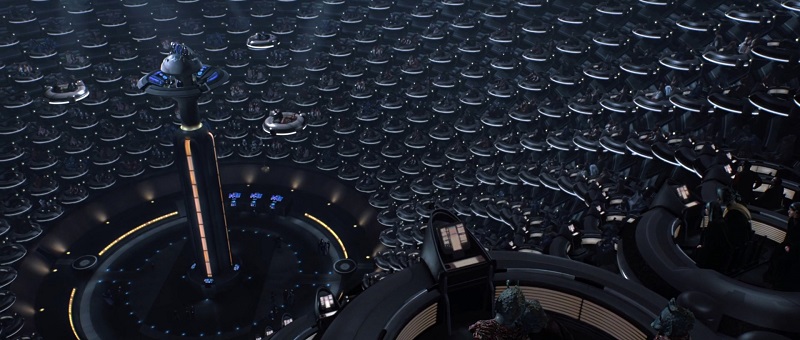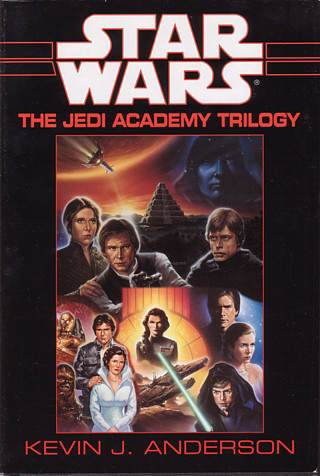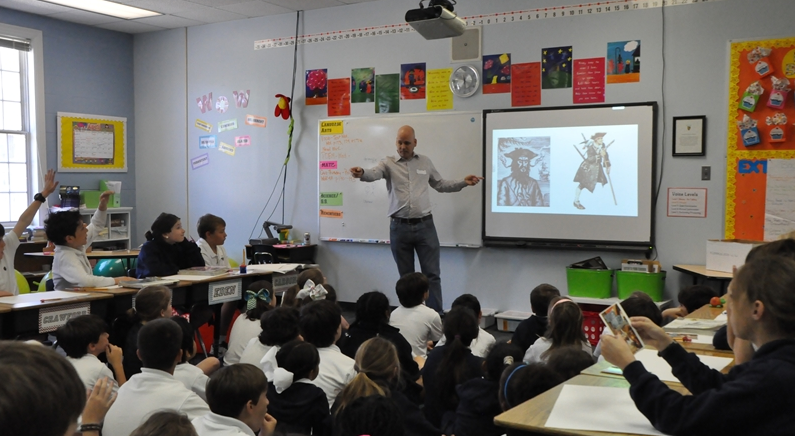
Politics have been part of Star Wars since the opening pages of Alan Dean Foster’s novelization of A New Hope told the story of how the Old Republic became the Empire not through a military coup, but because it rotted from within due to corruption. With the publication of Claudia Gray’s political drama Bloodline, and the revelation that its central conflict arose from suggestions by Episode VIII director Rian Johnson, politics are once again at the forefront of the Star Wars universe. But does the saga have a core political philosophy, or make a political statement? If it does, how does it relate to the overall philosophy of Star Wars? And can we use it to predict where the franchise might take us next?
Harmony and corruption in the old Republic
The Phantom Menace is the clearest statement of George Lucas’s political outlook, and we can use it as a starting point to follow this thread through the rest of his six-episode saga. On a narrative level, TPM is the story of Padmé Amidala, told mainly through the eyes of Qui-Gon Jinn: the core conflict against the Trade Federation is Padmé’s, and it is her choices – first to leave Naboo and appeal to the Senate, then to return and unite her people with the Gungans – that drive the story and give it shape. It is unlike any other film in the saga – not the mythic hero’s journey of a Jedi-to-be, but the story of a young woman’s political coming-of-age.
Padmé leaves Naboo because she believes in the ability of the Senate to save her people from the Federation. Arriving on Tatooine, however, Padmé is shocked to discover that there is still slavery in the galaxy, and that there are places where the laws of the Republic simply do not exist. Even Republic money is worthless out here, and the entire planet is controlled by gangsters. The implication is clear: the Republic doesn’t care about what happens on the galactic frontier. When we reach Coruscant, we discover that the Trade Federation, a corporation driven by profit, has its own seat in the Senate, giving it a voice in galactic affairs that is equal to any Republic system, and stronger than worlds such as Tatooine. Taking advantage of legalism and bureaucracy, the Federation is able to stall the Senate’s actions. Read More
 For the latest piece in our Fatal Faves series, Megan Crouse of This Blog is Full of Words/HoloNet Digest and I got together to talk about the Jedi Academy trilogy! We both have fond memories of this much-maligned trilogy from our younger days, and we revisited them together. With much laughter, mocking, and nostalgia, here’s our conversation!
For the latest piece in our Fatal Faves series, Megan Crouse of This Blog is Full of Words/HoloNet Digest and I got together to talk about the Jedi Academy trilogy! We both have fond memories of this much-maligned trilogy from our younger days, and we revisited them together. With much laughter, mocking, and nostalgia, here’s our conversation!

![john-boehner[1]](http://eleven-thirtyeight.com/wp-content/uploads/2016/05/john-boehner1.jpg)
